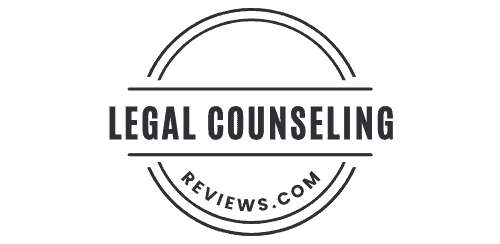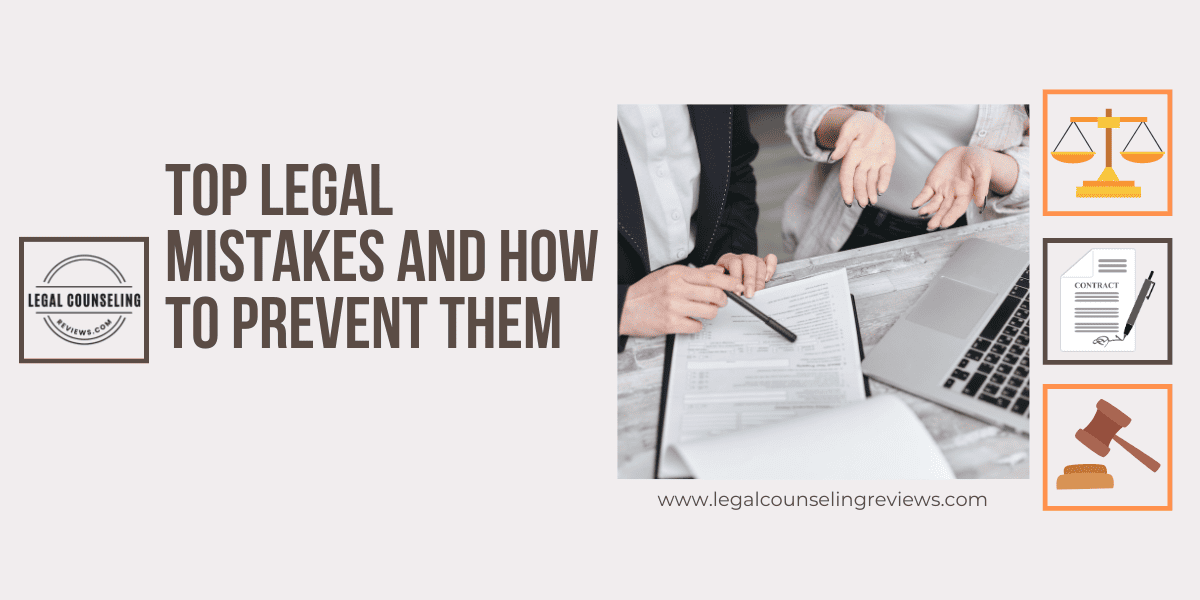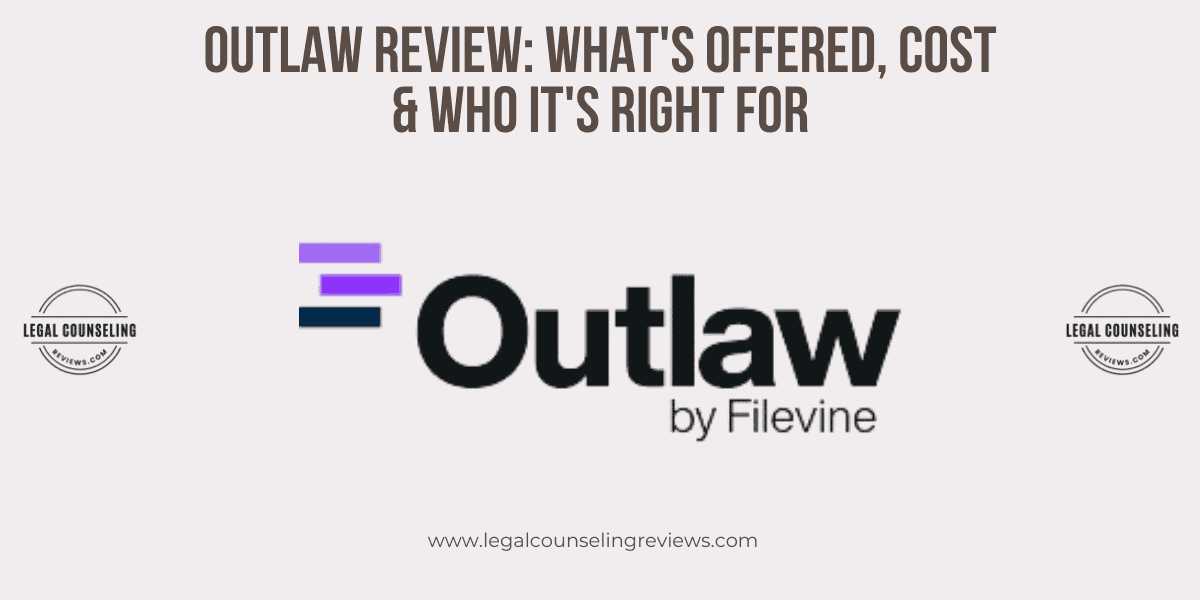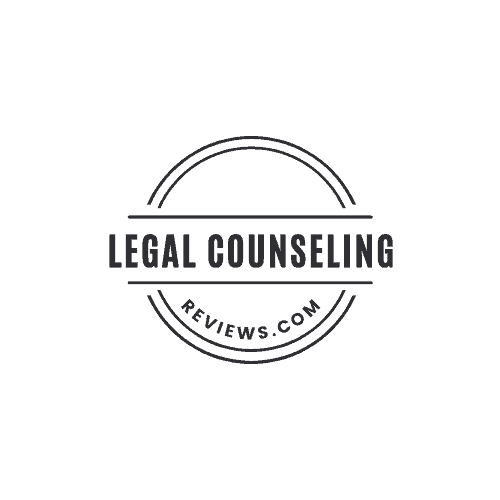Starting a business is more than choosing a niche and a name for the company. When becoming entrepreneurs, many people unintentionally make some pretty radical mistakes that can harm their business before it even lifts off.
Luckily, there are ways to prevent such legal mistakes from happening, and we’re about to elaborate on them in this article.
Top Legal Mistakes and How to Prevent Them
Failing to secure a business’s intellectual property and not selecting a business entity type are some of the leading legal mistakes business owners make. However, there are ways to ensure that such mishaps do not happen since they can be both costly and pose a risk to the business’s success.
7 Costly Legal Mistakes Start-Ups Make
From failing to register your business under a certain business structure to only relying on Google as the go-to market research tool, let’s go over seven of the most common legal mistakes entrepreneurs make that turn out to be massive budget drainers.
Not Picking an Entity Type
If you’re running a business on your own and haven’t formed an LLC or other type of business entity, you could be held personally liable for any debts or legal issues that arise. This means that if something goes wrong in the company, you will have to pay for any damages. So it’s a good idea to consider setting up an LLC, corporation, or partnership—depending on your circumstances—to help protect yourself and your business.
Note: If your lawyer or accountant ever uses the term “limited liability corporation,” it may be a sign that they’re not entirely up-to-date on their terminology. The correct term is actually “limited liability company.”
Relying on Google
Google is a brilliant tool to help you research solutions for any legal issues you may have regarding your company. But that’s not the only thing you can use it for—there are gazillion resources on Google, as well as templates, ready-to-use forms, and whatnots that you can download for free and go about your business.

But, having Google as your only point of research and information insight is a massive no. Relying on nothing more than this search engine can easily translate to some of the biggest legal mistakes you’ll ever make as a business since anyone can write and upload anything today.
Not Assigning Your IP
As an entrepreneur, it’s crucial to consider what would happen if someone claimed ownership of your intellectual property (IP). One of the biggest risks today is losing the right to your creations. If you don’t assign your IP to your company, you may risk others claiming ownership or even disputing your rights. This could result in legal disputes and financial losses.
Simply put, if you don’t assign your intellectual property, then your ideas won’t be protected under intellectual property laws. This means that competitors might use or copy your ideas without your permission, leaving you without any legal recourse and potentially harming your business.
Remember:
- Without proper IP assignment, competitors might steal and copy your ideas, leaving you with no way to legally protect yourself.
- Assigning ownership of your IP ensures that your creations are exclusively yours, giving you a competitive advantage in the marketplace.
- When starting your business, make sure to assign IP ownership to your company from the beginning. This will ensure you’re on the right way to bypass grave business consequences, as well as safeguard your ideas.
Failing to Get the Necessary Licenses and Permits
This is a major setback that can really plummet your business right from the start. Even if you have all the business know-how and the targeted audience awaiting your market presence, if you neglect to attain all the necessary licenses and permits, you will be in big trouble.
Whether you’re a small business, a large corporation, a one-man show, or a work-from-home type of business, you need specific legal documents to be allowed to work. Depending on the nature of your business, these are the documentation you’ll definitely need:
- Permits specific to the industry you’re working in
- State qualification to do business
- Home-based business permits
- City and county business and zoning permits or licenses
- Sales tax license
- Seller and health department permits
- Federal and state tax/employer IDs
If you’re missing some of these licenses, you may face temporary closure of your business, fines, and many other costs that could’ve been avoided from the start. Maintaining proper HR documentation is an important extension of a business that should not be neglected.
Using the Wrong Legal Counsel
Not every lawyer will know how to address specific corporate and business laws. Using the wrong legal counsel is an honest mistake many aspiring entrepreneurs make due to poor information.
Hiring the services of the wrong legal counsel that is not knowledgeable in venture financing, standard business, and corporate laws, as well as the specifics of startups, can be a step in the wrong direction. Do some research and choose business lawyers that know the ins and outs of the entrepreneurial business world regarding legal matters.
Neglecting to Protect Intellectual Property
It is definitely safe to say that your ideas, your knack for business, and your entrepreneurial know-how are your most valuable assets. In other words, all of that falls into the IP (intellectual property) category.
As we already mentioned, when it comes to running a business, shielding your IP properly ensures you have cleared the way toward a sustainable business that’s here to stay. In all fairness, to do so, you first have to be aware of what can be protected under copyright, trademark, patent, or laws regarding trade secrets.
While you do that, make sure you are not infringing on other businesses’ IP when you’re setting up your social medial campaigns, for example. In addition, while you might own a domain name, make sure that your logo, the company’s name, or even tagline is not already in possession of another company.
Failing to Understand Tax Considerations
To a lot of people, the topic of taxes is a concept that’s quite difficult to grasp. However, business owners simply have to have knowledge of taxes and tax considerations. Failing to do so, intentionally or not, can lead to severe financial penalties and even closing the business.
Many startup entrepreneurs are not familiar with the influence taxes have on their companies. Whether it’s sales taxes, franchise taxes, or determining the right amount of payroll taxes, this can be a lot to take in, which is why plenty of business owners decide to invest in an employee exclusively dealing with taxes.
Top 6 Legal Documents for Startups
In the business world, we tend to perceive entrepreneurs as an idea-packed, energetic, ready-to-take-on-the-world type of people. However, being an entrepreneur is also a risky business, especially if you haven’t yet established the necessary legal foundation for a seamless business operation.
We have shortlisted the six most important legal documents a startup should not be without. Let’s go over them one by one:
- Business formation documents – Articles of Formation filed with the state.
- Governing documents (Operating agreements)
- Intellectual property assignment agreement
- Nondisclosure agreements – NDAs, typically signed by anyone with access to confidential information)
- Shareholder agreements and buy-sell clauses – Includes buy-sell clauses explaining how to handle a shareholder who leaves the company.
- Employee contracts (employment agreements) – In practice, a lot of startups fail to outline employment agreements due to the fact that “they’re still new and getting things up and running,” and this is a by-the-book example of a poor business decision. Employee contracts are among the first legal documents startups should put in place to ensure everyone involved understands their roles and obligations.
Key Takeaway: Common Legal Mistakes Entrepreneurs Should Be Aware Of
Being an entrepreneur is interesting, but it is a job that requires placing all legal foundations, so it works well. From collecting all the right information from credible sources to understanding the importance of choosing the right business entity, you need to have all things checked even before you open up for business. Seeking legal advice can ensure minimal margins for errors, which translates to fewer (if not none) legal mistakes.
Ask yourself this, “If you’re already in the entrepreneurship business, are you doing your best to safeguard your IP? Are you in line with proper corporate requirements?” The answers to these questions can help you ensure your business’s longevity and build your brand as a reputable business your clients trust and keep coming back to.
Author

Raymond Hickman is a distinguished lawyer, writer, and legal commentator with extensive experience in various areas of law. He is widely recognized for his exceptional legal knowledge, insightful analysis, and engaging writing style, which have earned him a reputation as a leading voice in the legal profession.With his exceptional legal expertise, insightful analysis, and engaging writing style, Mr. Hickman has earned a reputation as a leading authority in the legal profession. His contributions to the field of law have been recognized by his peers, clients, and the wider legal community, making him a valuable resource for anyone seeking legal advice or insight.








